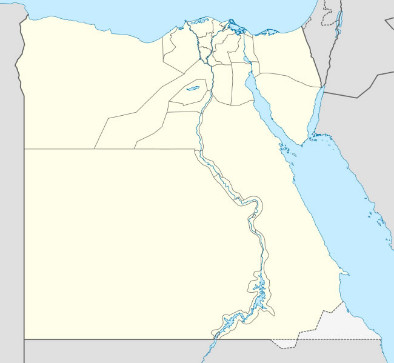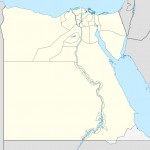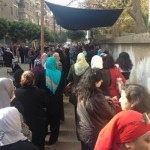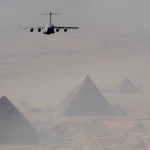
Guest Post: Egypt’s Political Process Continues – but needs world support
An edited version of this article appeared in The Hill yesterday.
Amr Badr, Board member on the Egypt – U.S. Business Council, writes:
 While every country in the world is important, Egypt merits the attention and concern of all nations due to its natural position as the leader of the Middle East and Africa; its counter-terrorism efforts; the importance of securing its border with Israel; the Suez Canal; and its key position on both the Red Sea and the Mediterranean.
While every country in the world is important, Egypt merits the attention and concern of all nations due to its natural position as the leader of the Middle East and Africa; its counter-terrorism efforts; the importance of securing its border with Israel; the Suez Canal; and its key position on both the Red Sea and the Mediterranean.
An additional feature to Egypt’s global position that should not be overlooked is its role as a center of moderate Islam, established through the foundation of Al Azhar in 970 AD. A cornerstone of global peace, Al Azhar strives to promote a message of coexistence and serves as an antidote to sectarian violence.
Since the beginning of the year Egypt’s political situation has continued to evolve with the drafting of a new constitution by the Committee of 50, a group of Egypt’s most prominent leaders. It was approved by approximately 98% of voters in a constitutional referendum, in which nearly 40% of the total electorate took to the polls.
The new constitution established a democratic foundation by clearly defining the Office of the President, including the presidential election process, limitations on his or her authority, and the duration and maximum number of terms of service. It also guarantees protection of the rights of women and minorities, as well as governmental investment towards overcoming Egypt’s most critical challenges: education, healthcare, national development and a greater focus on R&D, a vital element for the Egypt of tomorrow.
Approaching the upcoming presidential election, the newly approved constitution will serve as a guideline. Unlike the last election, were the winner won the right to draft the constitution his way.As a result, the people rejected the system in totality.
Another significant change is reflected in the lively debate between potential presidential candidates, which can be heard on every street and in every home. Citizens are no longer easily won over by a party name or a reputation. Instead, candidates must actively work to earn votes. Colossal changes in this system are often overlooked and undervalued by external analysts because they are not here to witness them.
 The rules of the game are now clear: our leader will be democratically elected, the legal process for transfer of power will be adhered to on time each time, and a system of checks and balances is in place. In addition, it fortifies a critical correction that has been made to our political foundation – the separation of religion and state. This correction ensures that neither of the two wings of the Egyptian public, the Muslim majority and the Christian minority, be marginalized or excluded.
The rules of the game are now clear: our leader will be democratically elected, the legal process for transfer of power will be adhered to on time each time, and a system of checks and balances is in place. In addition, it fortifies a critical correction that has been made to our political foundation – the separation of religion and state. This correction ensures that neither of the two wings of the Egyptian public, the Muslim majority and the Christian minority, be marginalized or excluded.
Egypt’s next leader must honor this civil foundation, focusing on unifying rather than dividing the country.
Analogous to any major corporation, results and teamwork are strongly correlated. In order to satisfy the public, the next president must respect the rights and requirements of all Egyptians within his contingency. This will be achieved through sustainable development programs, better civil services, job creation, revamped education and health systems, and improvements in infrastructure – changes that will raise the living standard of all Egyptians.
Presidential candidates are charged with developing strategies to address two primary challenges ahead of them: economic development and security. A successful economic strategy will need to include reforms, subsidies, development of the public sector, attracting FDI and local private investment, tourism growth, and an increased presence in the global market. All of these measures will add hope to very dire situation (which would undoubtedly take the intellect of multiple giant economists
Intimately linked to the economy is the national security. Egypt is fighting terrorism, which has transitioned from attacks on the public, as well as on security forces, to a deliberate economic disruption plan. Its perpetrators seek to destabilize the economy in order to create a failed state, falsely believing that such conditions would provide an opportunity to seize power.
With these economic and security challenges in mind, a reassessment of Egypt’s geopolitical strategy is needed.
Although this is clearly a crucial time to maintain and even strengthen the U.S.-Egypt relationship, today’s political climate also calls for greater balance.
Traditionally, Egypt has aligned itself with one key ally depending on the conflict. The Royal Kingdom of Egypt supported the Allies against the Germans. During Nasser’s era, Egypt responded to U.S. pressure by allying itself with the Soviet Union. Under Sadat, Egypt responded to Soviet pressure by forging an alliance with the U.S. Mubarak decided to move to an 80/20 policy (referring to an 80% closer to American interests and 20% to other choices in the ally market).
Morsi headed in the direction of total dependence on international support. It is clear that these policy choices were made without consideration of public opinion, which is a strategy that will no longer be accepted. Popular mandate must now be respected, and simultaneously leaders must help educate the public on the friends of Egypt and their role in security and prosperity here.
It is clear that in the modern world we face, Egyptians must be open to allies who bring valuable resources for improving our quality of life and stability.
Egypt’s allies on all continents will be key players in accomplishing our goals. Therefore, Egypt must resist aligning too strongly with a particular side or leading a fight on behalf of others. Diversification of allies is in the best interest of everyone as a well-supported, strong Egypt is a better partner than a polarized and weakened one.
 Finally, Egypt’s cooperation with the U.S. military ensures that Egypt plays a key role in both peacekeeping missions around the world and counter-terrorism. As such it will be key that the United States play a more central role in supporting the Egyptian people in their ongoing political and economic processes. This can only be achieved with further trust-building measures, partnerships, and open dialog on a strategic level, in addition to military and security assistance.
Finally, Egypt’s cooperation with the U.S. military ensures that Egypt plays a key role in both peacekeeping missions around the world and counter-terrorism. As such it will be key that the United States play a more central role in supporting the Egyptian people in their ongoing political and economic processes. This can only be achieved with further trust-building measures, partnerships, and open dialog on a strategic level, in addition to military and security assistance.
With all of the above, world support of Egypt’s economic reform is vital to domestic, regional, and global stabilization.
To complete this challenging transition, allies old and new need to offer their support, while also acknowledging that only Egyptians have the right to decide on the correct democratic model to suit their nation’s complex circumstances.
This Egyptian-model must be based on the principles of Egypt’s constitution and the global values of human rights, freedom, and democracy. The Egyptian people do not wish for a third wave of change. It is clear that the free world should aid Egypt in its quest to build a vibrant, strong economy and eradicate terrorism and violence.
Egypt’s friends must be called upon to provide the necessary support to facilitate change, while still acknowledging the need of the Egyptian people to decide their own fate in a truly open and democratic process.
This includes the debate over reconciliation, which has been neatly packaged in the word “inclusiveness.
The concept of inclusiveness is somewhat problematic as it suggests the possibility for one group to continue old practices through a new model, which would be a major setback for Egypt’s future.
While an Egypt for all is unquestionably the right target for all Egyptians, the newly agreed upon constitution should be the source of guidance for all parties involved. Separation of religion and state is imperative, as well as absolute intolerance of terrorism and violence of any kind. The Brotherhood and its supporters must accept that bloodshed and disorder is not a means to an end but instead serves to escalate tensions and cultivate hatred.
 The clock cannot and will not turn back. To move forward, the leadership of Egypt must play by the new rules of the game, and all players and their supporters must abstain from any form violence as a political tool.
The clock cannot and will not turn back. To move forward, the leadership of Egypt must play by the new rules of the game, and all players and their supporters must abstain from any form violence as a political tool.
When Sadat made peace with Israel , he recognized both sides’ casualties, losses, and humiliation. As a visionary he was able to engineer a deal that has lasted for four decades, with the support of the world. I think the Egypt of today needs the same support globally in order to eliminate the factors that lead to violence and chaos , to reconstruct and grow the economy, and to facilitate steps towards the peaceful coexistence of all Egyptians, under a constitution that ensures that religious doctrine cannot be exploited for political gain.
In conclusion, Egypt’s global position is in a phase of transformation. While it seeks to reorganize its entire political structure and is on the verge of selecting its next leader, it must also look beyond its borders to cultivate mutually beneficial relationships with its allies.
 Amr Badr is the Regional Managing Director of Abercrombie & Kent for Egypt and the Middle East, he is also a Board member on the Egypt – U.S. Business Council.
Amr Badr is the Regional Managing Director of Abercrombie & Kent for Egypt and the Middle East, he is also a Board member on the Egypt – U.S. Business Council.





